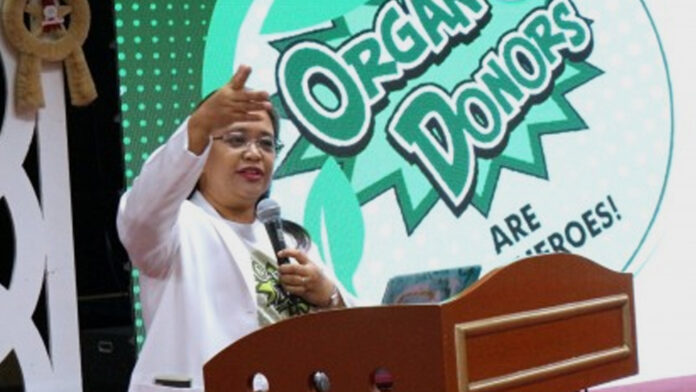Family consent remains the top problem in deceased organ donation, a doctor at Southern Philippines Medical Center-Human Advocate and Retrieval Effort (SPMC-SHARE) in Davao City bared on Friday.
In an interview with the Philippine News Agency, Dr. Ma. Theresa Bad-ang, nephrologist and head of SPMC-SHARE, said the public needs to be aware of the importance of deceased organ donation.
She said the refusal of family members to allow patients with irreversible loss of brain function to donate their organs remains a setback.
“That’s why we need them to understand everything about organ donation. We will continue to intensify our efforts in campaigning for the public to be more aware of the importance of organ donation,” she said on the sidelines of Organ Donor’s Week activities.
She said the public must think about saving lives.
“This is not a call for you to sell your kidney but a call for donation if you don’t need it anymore,” Bad-ang said.
Those willing can sign up for donor cards, like when applying for a driver’s license or from the National Kidney and Transplant Institute.
Once signed up, the organ donor should inform their families.
As of the 2022 Department of Health data, 90,000 Filipinos are on dialysis. In the Davao Region, there are around 2,400 patients, with an approximate increase of 12 to 15 percent per year.
“Yes the dialysis is free, but the survival rate is five years. While 80 percent will live after one year, after five years, only 50 percent lives,” Bad-ang said.
However, if a patient has an organ transplant, the survival rate goes to 98 percent.
In 2020, the City Council passed an ordinance to institutionalize organ donation in the city and promote awareness among the Dabawenyos. (PNA)






